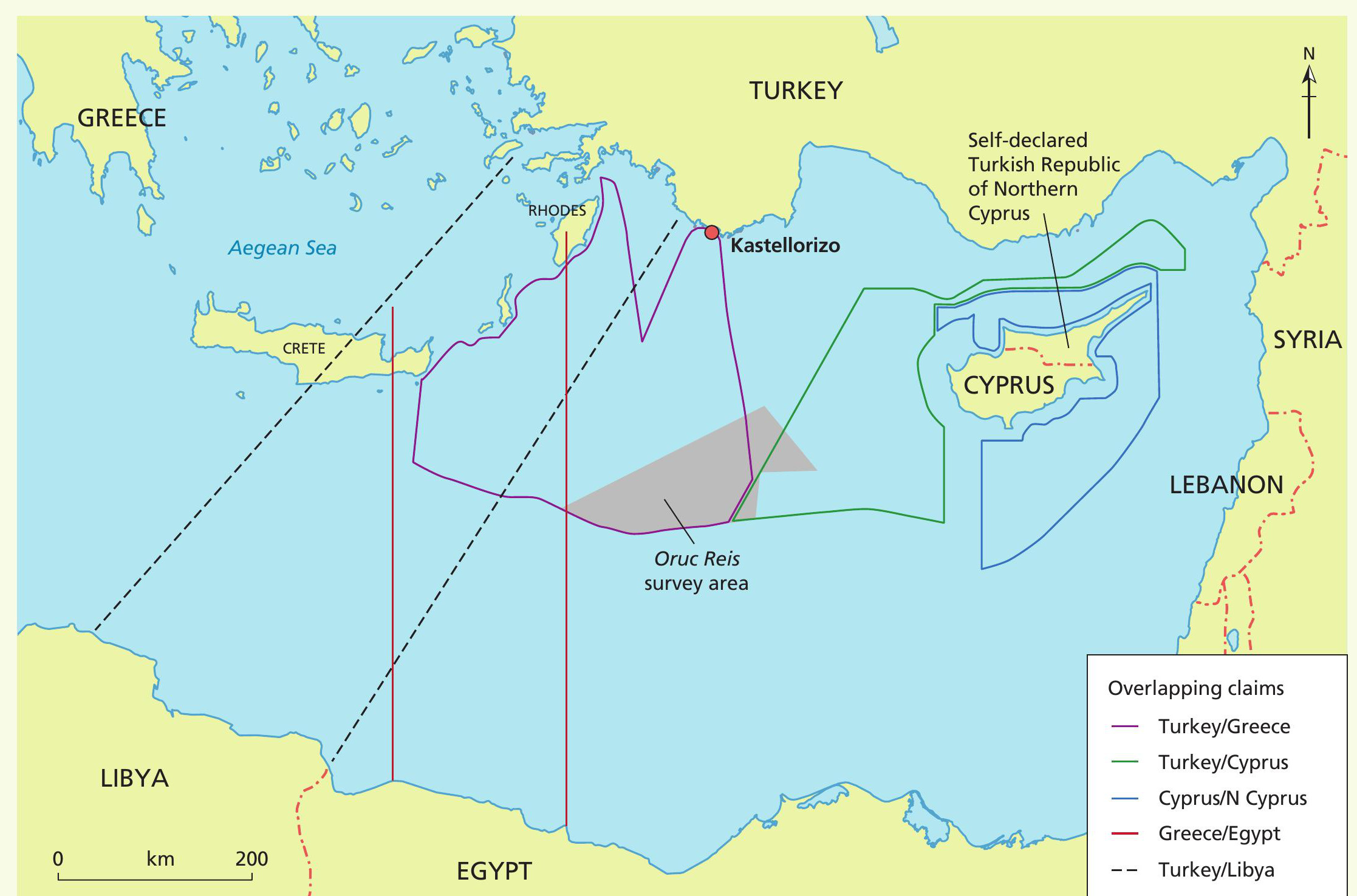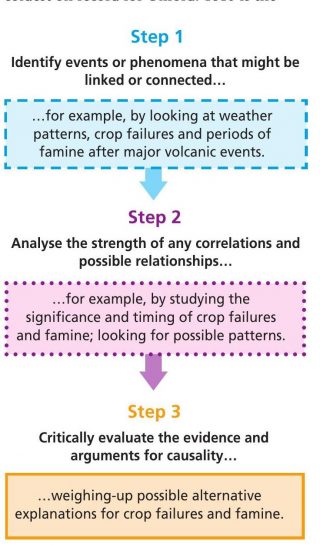
In October 2020, a Turkish oil exploration vessel, the Oruc Reis, left the Turkish port of Kas to search for offshore oil beneath the seabed between the Mediterranean islands of Cyprus and Crete, south of the Greek island of Kastellorizo (see Figure 1). This seemingly innocuous move greatly increased political tensions between a number of countries in the Eastern Mediterranean: Turkey, Greece, Cyprus, Egypt, Syria and Libya. It also caused stresses within the European Union (EU) and beyond.
These tensions were prompted by rivalry over future energy resources, though other factors played a significant role. These include rights to access resources beneath the seabed and their governance, as well as the waters above. The fact that several of these countries are members of the North Atlantic Treaty Organization (NATO), and therefore are meant to be military allies, makes resolution of the conflict challenging, especially for other leading countries in that alliance — the USA, France and Germany. So, what is the trouble all about?
Your organisation does not have access to this article.
Sign up today to give your students the edge they need to achieve their best grades with subject expertise
Subscribe




